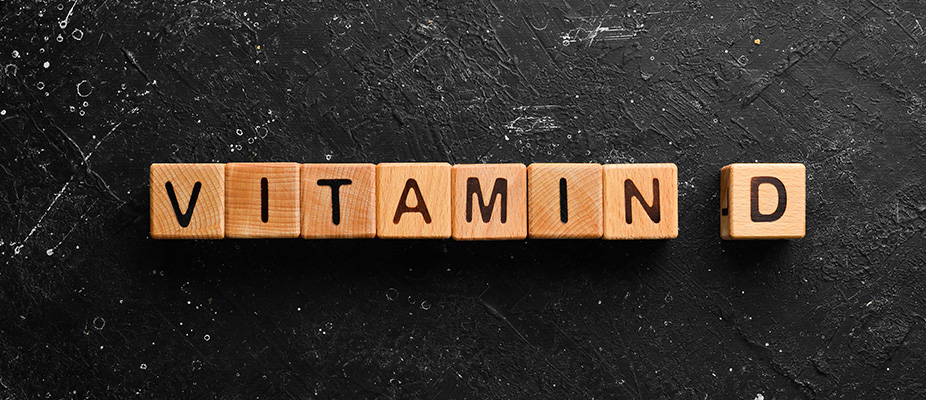
Introduction
Vitamin D is a nutrient that your body needs to function correctly. It has been linked to everything from cancer prevention to boosting moods and even reducing muscle pain.
While we know sunlight gives us our daily dose of vitamin D, it’s been linked to much more — including cancer prevention. Vitamin D is essential for the absorption of calcium. It plays a role in the health of your bones, teeth and muscles. There are different forms of vitamin D. Five minutes of sun exposure per day can give you the recommended amount of vitamin D. Vitamin D deficiency can cause rickets, osteomalacia and osteoporosis. You can get low doses of vitamin D from your diet:
While we know sunlight gives us our daily dose of vitamin D, it’s been linked to much more — including cancer prevention.
While we know sunlight gives us our daily dose of vitamin D, it’s been linked to much more — including cancer prevention.
“In the U.S., sun exposure is the main way people get their vitamin D,” says Dr. Michael Holick, a professor of medicine at Boston University Medical Center and author of The Vitamin D Solution: A 3-Step Strategy to Cure Our Most Common Health Problems. “But in other countries, where they have more sunshine year round, there’s less need for supplements.”
Vitamin D is essential for bone health and helps fight off infection by boosting your immune system; research suggests it might also protect against colon cancer, breast cancer and other diseases such as multiple sclerosis (MS).
Vitamin D is essential for the absorption of calcium.
Vitamin D is essential for the absorption of calcium, which is required for strong bones and teeth. Without enough vitamin D, your body can’t properly use calcium or phosphorous to make new bone. That means you’re more likely to develop osteoporosis or break a bone.
Vitamin D also helps your muscles move by improving muscle strength and coordination, so it’s important for athletes who need strong muscles and good balance.
Vitamin D also helps maintain cardiovascular health by lowering blood pressure through its effects on the heart and blood vessels.
It plays a role in the health of your bones, teeth and muscles.
Vitamin D plays a role in the health of your bones, teeth and muscles. It helps with the absorption of calcium and phosphorus. Vitamin D also helps maintain strong bones by reducing bone loss or increasing bone formation.
A deficiency of vitamin D can cause the body to absorb too much calcium, which leads to conditions such as high levels of calcium in the blood (hypercalcemia). Muscle weakness may also occur from this condition because there is not enough vitamin D available to help with muscle function or movement.
There are different forms of vitamin D.
There are four types of vitamin D: D2, D3, and D4.
Vitamin D2 is derived from plants. It’s sometimes added to foods or used in dietary supplements (like cod liver oil). This type of vitamin D can be found in fortified cereals and breads, breaded fish sticks and frozen entrees. Vitamin D2 can also be taken in pill form as a supplement if you don’t get enough sun exposure where you live.
Vitamin D3 is made by the skin when exposed to sunlight — and it’s this form that we’re talking about here. Unlike most vitamins that you ingest through food or supplements, your body doesn’t produce any vitamin D on its own without sunlight exposure; this type has no other source but sunlight itself!
When your skin is exposed to UVB radiation from the sun (which takes around 15 minutes), cholesterol molecules in your skin start breaking down into a substance called cholecalciferol (this happens whether or not you’re wearing sunscreen). The cholecalciferol then travels through your bloodstream until it reaches your liver where it gets converted into 25-hydroxyvitaminD (25(OH)D), which circulates for about four days before being metabolized further by another enzyme called 1a-hydroxylase into calcidiol (1a-hydroxycholecalciferol). In order for your body to make use of calcium properly — which plays an essential role in building strong bones — you need adequate levels of 25(OH)D circulating inside.

Five minutes of sun exposure per day can give you the recommended amount of vitamin D.
Sunlight is the main source of vitamin D, but you can also get it from food. For example, some dairy products contain vitamin D. The recommended amount of vitamin D for adults is 600 IU per day. If you want to increase your levels of vitamin D and boost your bone health, five minutes of sun exposure per day can give you enough sunlight to meet that requirement. You don’t need to apply sunscreen or take special precautions when getting this amount of sunlight—just enjoy yourself while outside!
Another option if you’re concerned about how much time you spend in the sun is buying a supplement with added vitamins and minerals (like this one). But remember: Supplements aren’t as good as getting nutrients naturally through food sources like fish or eggs!
Vitamin D deficiency can cause rickets, osteomalacia and osteoporosis.
Rickets is a softening of the bones in children, which can lead to skeletal deformities. Osteomalacia is a bone-softening disease that affects adults. Osteoporosis is a condition where your bones become brittle and more likely to fracture from minor bumps or falls.
Vitamin D deficiency can also increase your risk for cancer by reducing the body’s ability to fight off tumor growth.
You can get low doses of vitamin D from your diet.
If you don’t want to take a vitamin D supplement, you can get low doses from your diet. Some foods naturally contain vitamin D; others have it added during processing or preparation.
• In fish, eggs and dairy products: Foods that come from animals—fish and poultry (chicken, turkey), as well as some types of cheese—are rich in vitamin D.
• In fortified foods: Cereals are often fortified with vitamin D because they’re not good sources on their own.
In small amounts, sunlight can have great benefits for your body’s functioning and overall health.
Sunlight is a natural source of vitamin D. In small amounts, sunlight can have great benefits for your body’s functioning and overall health.
Vitamin D is a fat-soluble vitamin that humans need to maintain bone and muscle health. Vitamin D can be obtained from food or supplements, but most people rely on their bodies’ own ability to produce vitamin D by exposure to sunlight on the skin rather than from dietary sources alone.
Conclusion
In a way, it’s not surprising that vitamin D has so many benefits. It’s one of the most important nutrients for your body, and it’s something we can get from both sunlight and food sources. However, if you’re interested in trying to get more of this nutrient into your diet or just want to know more about how it works in our bodies, there are plenty of resources available online. Check out these links if you want more information:




